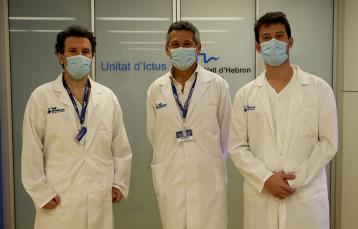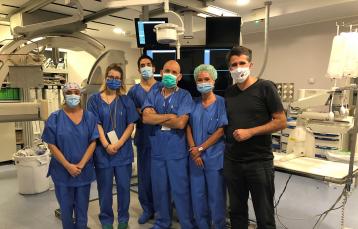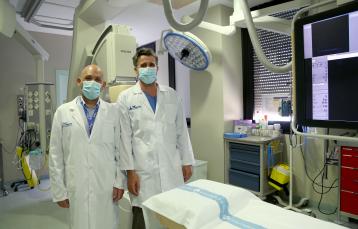A study by Vall d’Hebron shows that patients with severe pulmonary injury due to COVID-19 have increased risk of stroke
Comparteix aquest contingut
Related professionals
Sra. Pilar
Meler Amella
Meler Amella
Sra. Pilar
Meler Amella
Meler Amella
Nursing Supervisor
Sra. Olga
Miñarro Agüero
Miñarro Agüero
Sra. Olga
Miñarro Agüero
Miñarro Agüero
Dra. Estela
Sanjuan Menendez
Sanjuan Menendez
Dra. Estela
Sanjuan Menendez
Sanjuan Menendez
Researcher
Vascular Biology and Metabolism (VBM), Neurovascular Diseases
Sra. Ángela
Palacino Pleguezuelos
Palacino Pleguezuelos
Sra. Ángela
Palacino Pleguezuelos
Palacino Pleguezuelos
Sr. Wifred
Llopis Miró
Llopis Miró
Sr. Wifred
Llopis Miró
Llopis Miró
News and events















